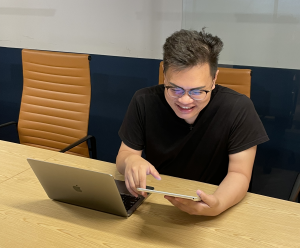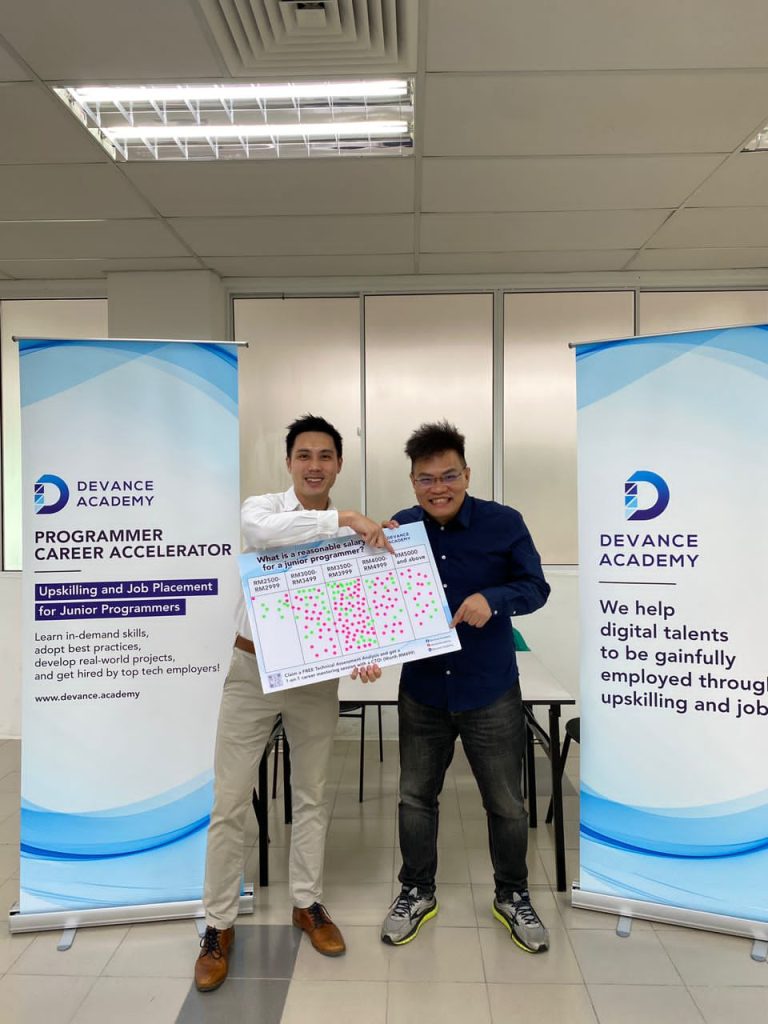The job market has been volatile, with many industries experiencing layoffs and job losses.
However, one industry that seems to be thriving is software engineering. Lucky you!
This is especially true in the Southeast Asian (SEA) region, where tech startups are still rising fast and driving the demand for skilled software engineers.
As a software engineer looking to join a good tech company, you must be prepared to go through a rigorous hiring process. While your technical skills play a big role, it’s important to note that companies don’t only look for competent engineers.
They are also interested in hiring well-rounded individuals who possess excellent communication skills and problem-solving abilities, in addition to their technical knowledge.
Facebook, Amazon, Apple, Netflix, and Google (FAANG) companies are usually the ones who set the standard for the industry’s interview process.
So it make sense if you’re looking to join a local tech startup, you learn about the common software engineer interview questions asked by the biggest tech companies.

Question 1: What are the key skills required for a Software Engineer?
This is a broad question that allows you to highlight your knowledge and experience in software development.
The key skills for a software engineer typically include proficiency in programming languages such as Java, Python, or C++, understanding of data structures and algorithms, problem-solving ability, and familiarity with software development tools.
Tip: When answering this question, focus on your experience with specific programming languages and tools, and how you have applied them to solve real-world problems. Importantly, align what your key skills with what the company is looking for.
Question 2: How do you handle bugs or errors in your code?
This question aims to test your debugging skills and your ability to identify and fix errors in your code. You can answer this question by describing your process of identifying the problem, isolating the error, and fixing it.
Tip: When answering this question, provide examples of how you have used debugging tools to fix errors in your previous projects. You can also highlight your ability to test and validate your code to avoid errors.
Be sure to emphasize the importance of thorough testing and validation before releasing any code changes. It’s an opportunity to demonstrate your problem-solving skills and your ability to troubleshoot issues in your code.
Question 3: What is your approach to Software Design?
This is an interesting one as it aims to test your ability to design software that is scalable, efficient, and easy to maintain.
You can answer this question by describing your design process, including conducting research and analysis for requirements gathering, as well as taking into consideration the importance of scalability, modularity, and maintainability when designing system architecture to ensure the software is robust, flexible, and easy to maintain over time.
Tip: When answering this question, provide examples of how you have designed complex systems and how you have addressed challenges such as scalability and maintainability.
At the same time explain how you are able to balance between the business needs and technical needs. It’s an opportunity to demonstrate your understanding of software design principles and your ability to apply them to real-world problems.

Question 4: How do you stay up-to-date with the latest technologies and trends?
This question aims to test your passion for software development and your ability to stay current with new technologies and trends.
You can answer this question by describing your approach to learning and how you stay up-to-date with the latest developments in software engineering.
Tip: When answering this question, provide examples of how you have learned new technologies and how you have applied them in your projects.
Mention any online courses or books that you have studied to enhance your skills. It’s essential to convey your enthusiasm for learning and growing as a software engineer. By doing so, you’ll show the interviewer that you’re committed to being a lifelong learner and a valuable asset to their team.
Question 5: How do you collaborate with your team members?
This is a cliché yet important question that recruiters ask to test your ability to work in a team environment and collaborate with other software engineers.
Answer this question by describing your approach to communication, sharing knowledge, and resolving conflicts.
Tip: When answering this question, provide examples of how you have worked in a team environment and how you have collaborated with other software engineers to achieve project goals.
Question 6: What is your experience with Agile Methodologies?
This question aims to test your knowledge and experience with agile software development methodologies such as Scrum or Kanban.
Answer this question by describing your experience with agile methodologies, including how you have used them to manage project timelines and deliverables.
Tip: When answering this question, provide examples of how you have used agile methodologies to manage complex projects and how you have adapted them to suit your team’s needs.
Question 7: What is your greatest achievement as a Software Engineer?
This question aims to test your ability to identify your strengths and accomplishments as a software engineer. Answer this question by describing your most significant achievement in software development and how you contributed to the success.
Tip: When answering this question, it’s important to choose an achievement that demonstrates your skills and abilities as a software engineer.
Ideally, you should choose an achievement that is both impressive and relevant to the position you’re applying for. Of course, it is best if you could link how your achievement will be able to directly help the company.
Final thoughts
Preparing for common interview questions is only one part of the process.
But what’s more important is having an undeniable stack of proof that you’re the talent a company needs. This is usually shown with your portfolio or a reference to some of your online projects.
Above all, remember to be confident in your abilities, and provide specific examples of your work that highlight your unique strengths.
Remember that acing a software engineer interview is an achievable goal for most people. Just prepare accordingly and with the right mindset and determination, you should be able to land the job of your dreams.
Good luck!




